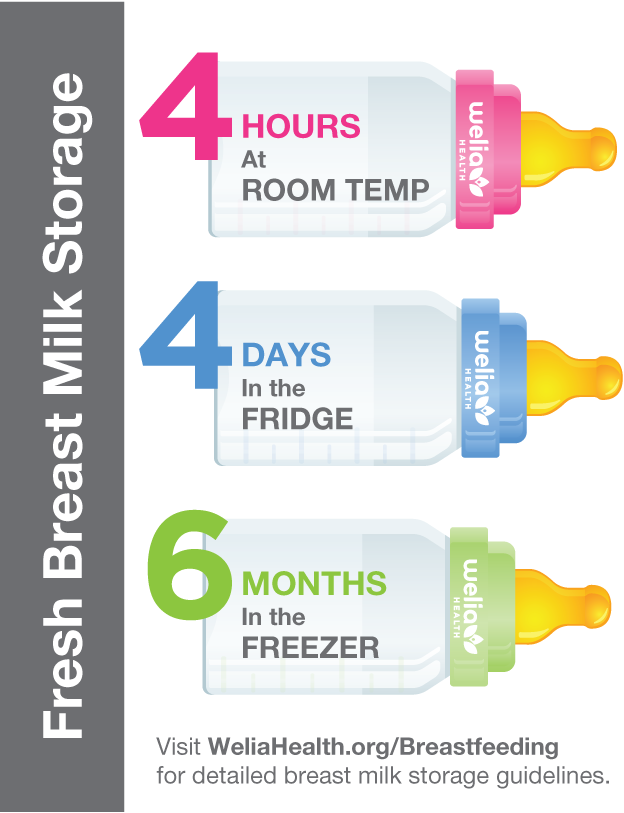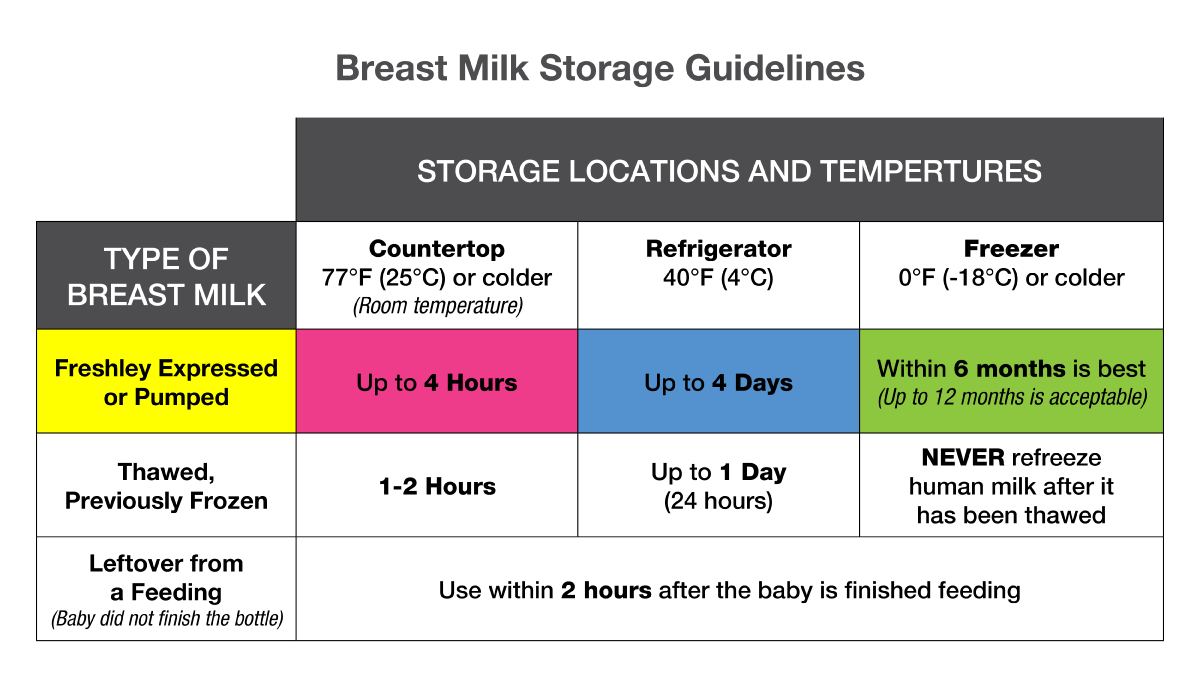Breastfeeding
The most natural way to feed your baby is by breastfeeding. It provides all the nutrition your baby needs during the first six months of life.
If you choose to breastfeed your baby, our OB staff will help initiate breastfeeding within an hour of birthing your baby. We will encourage breastfeeding on demand and practice rooming-in, allowing mothers and babies to remain together 24 hours a day.
Welia Health has certified lactation consultants to help new moms achieve their breastfeeding goals. They’ll also answer any questions you may have along the way. Here are some of the more common questions we hear from new moms.
What should I expect after my baby is born?
For the first hour after birth, expect plenty of skin-to-skin contact with your baby. Expect assistance with positioning, “latching on,” how to tell when your baby is swallowing milk, infant behavioral feeding cues, how often babies should be breastfeeding, and how to keep a breastfeeding log.
How often should I nurse my baby?
Newborns need to nurse frequently, at least every two hours, and not on any strict schedule. This will stimulate the mother’s breasts to produce plenty of milk. Later, the baby can settle into a more predictable routine. As breast milk is more easily digested than formula, breastfed babies often eat more frequently than bottle-fed babies. As you and your baby learn, breastfeeding will get easier. You will know your baby is getting enough if the baby eats as often as every 1–2 hours and needs several diaper changes daily. By the end of the first week, 6–8 or more diaper changes and 8–12 feedings every 24 hours will tell you the baby is getting enough.
Breastfeeding also helps both mom and baby avoid many health problems. Children who are not exclusively breastfed for six months have a greater chance of health problems, including ear infections, type 1 and type 2 diabetes, overweight or obesity, leukemia, respiratory diseases like pneumonia or asthma, and diarrhea. Breastfeeding also reduces the likelihood of your child having allergies, illnesses and tooth decay.
Benefits for the baby
- Breast milk provides special protection.
- Breast milk is easily digested.
- Breast milk is the perfect food for premature babies.
- Breastfed babies have higher IQs.
Benefits for the mother
- Breastfeeding is convenient.
- Breastfeeding helps shrink the uterus and stop bleeding after birth.
- Moms may return to their pre-pregnancy weight quicker.
- Breastfeeding helps mothers and new babies bond.
- Breastfeeding will reduce time lost from work or school because of sickness.
- Breastfeeding honors values, heritage and traditions.
Benefits for the community
- Breastfeeding saves valuable natural resources and keeps our environment clean.
- Breastfeeding means fewer healthcare dollars will be spent on illness.
- Breastfeeding will reduce time lost from work or school because of sickness.
- Breastfeeding honors values, heritage and traditions.
Benefits for the future
- Breastfeeding may lead to less diabetes.
- Breastfeeding may lead to fewer weight problems for the next generation.
- Breastfeeding may lead to stronger and wiser leaders for the challenges of the future.
Is breastfeeding easy?
Breastfeeding is not always easy for everyone. Even once breastfeeding is established, it can present challenges for some. In all cases, however, try to remember:
- Breastfeeding makes you feel part of a miracle that you share with your baby. Every time you breastfeed, you give the gift of life.
- Breastfeeding is not painful, though your nipples may be sensitive at first.
- Trust your body to have enough milk. You will know your baby is getting enough if the baby eats every 1-2 hours and needs several diaper changes. By the end of the first week, 6-8 or more diaper changes and 8-12 feedings every 24 hours will tell you the baby is getting enough.
- You are giving your baby a gift that only you can give.
- Nurture yourself as you would nurture your baby. Be patient with yourself as you and your baby learn new things together.
- The longer a mom and baby breastfeed, the greater the benefits. Exclusive breastfeeding for 6 months before introducing solid foods benefits you and your baby the most. It is also recommended that you continue to breastfeed for 12 months and thereafter for as long as desired.
What if I need help breastfeeding?
At Welia Health, a certified lactation counselor (CLC) is available to support you with breastfeeding advice and education.
Lactation support can include:
- Correct positioning and latch
- Management of sore nipples
- Milk supply concerns
- Plugged duct and mastitis
- Pumping and storing breast milk
- Returning to work while breastfeeding
- Taking medications while breastfeeding
- Addressing individual questions and concerns
Call Welia Health’s Lactation Helpline at 320.225.3525.
How long can I store breast milk?
Breast milk may be stored for 4 hours at room temperature, 4 days in the fridge, and 6 months in the freezer. Please visit the Center for Disease Control & Prevention for more information about the proper storage and preparation of breast milk.
- Store breast milk in 2-4 ounce portions to avoid waste.
- Clearly label breast milk with the date it was expressed or pumped.
- Use thawed milk right away or store in refrigerator for up to one day.
- Never heat breast milk in the microwave.
Ask Welia Health’s Lactation Consultants for this refrigerator magnet for a quick reference and reminder.

As a dad, how can I be involved with breastfeeding?
Many women who breastfed say they could not have done it without the support of their baby’s father. As a dad, you undoubtedly feel a great deal of pride, joy and delight at the birth of your baby. Although you can’t breastfeed your baby, you play a key role in the success of breastfeeding your baby!
- Change your baby’s diaper. It’s easy after the first few, and when a baby is breastfed, it doesn’t smell very bad.
- Give your baby a bath. This is one of the most fun things you can do with the baby.
- Bring your baby to your partner for feedings. Yes, even in the middle of the night.
- Bottlefeed your baby and give your partner some extra, needed rest. Moms can utilize a breast pump to collect milk which can allow others to help with feedings, creating additional bonds and potentially easing the transition to a bottle longer term.
- Spend time with your baby on your bare chest, touching, stroking, holding, and talking softly. Babies thrive on skin-to-skin contact.
- Cuddle and walk with a fussy baby – movement is calming for many babies.
- Talk, sing and read to your baby. Babies learn to speak from hearing lots of talking.
- Hold your baby while your partner takes a shower, naps or eats a warm meal.
- Give your baby a massage. Stroking and gentle massage can be soothing for both dad and baby.
- Play with your baby. Dads typically have different ways of playing with babies than mothers do. This is valuable for babies and fun for you too.
How else can dads help?
Give the new mom words of encouragement. She might need to hear them.
- “I am so proud of you and how healthy our baby is.”
- “You are doing a great job.”
- “Don’t give up. The first few days are the hardest – it will get easier.”
- “You’re giving our baby something no one else can.”
Questions?
Call Welia Health’s Lactation Helpline at 320.225.3625.


